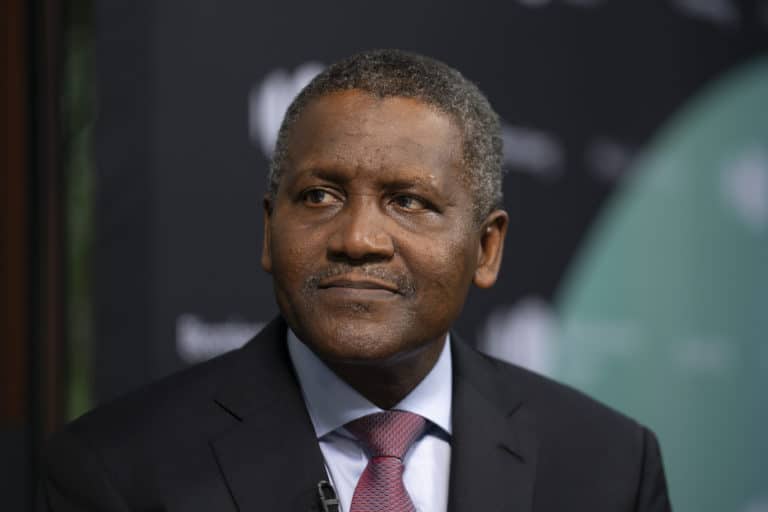Aliko Dangote, the Chairman of the Dangote Group, has seen his fortune soar following the completion of his $20 billion refinery in Lekki, Lagos, which is now recognized as the largest single-train oil refinery globally and one of the most complex facilities in the industry. With a processing capacity of 650,000 barrels per day, the refinery has the potential to revolutionize Nigeria’s economy by making the nation self-sufficient in fuel production. According to a recent Bloomberg report, this monumental project has more than doubled Dangote’s net worth to $27.8 billion, up from $13 billion at the beginning of 2024, as reflected in the Bloomberg Billionaires Index.
While reflecting on the immense challenges he faced during the construction of the refinery, Dangote candidly remarked that he was unaware of the formidable obstacles that would arise in the oil sector, likening it to a battle against a “mafia” more powerful than that in the drug trade. He described the experience as overwhelmingly stressful, fraught with divisive media narratives and skepticism surrounding the refinery’s viability. Since the refinery began operations, he has encountered multiple disputes with the Nigerian government and the Nigerian National Petroleum Company Limited (NNPC), in addition to public concerns about its environmental impact and implications for local communities.
The refinery project, which consumed 11 years and significantly exceeded initial estimates both in time and capital, represents a significant expansion of Dangote’s business empire, which is primarily built on commodities such as cement, sugar, salt, and flour. Critics have accused him of consolidating power through political connections, yet he defends his contribution to Nigeria’s manufacturing sector, noting that the country now exports cement instead of relying on imports. With the refinery, he aims to replicate this success in Nigeria’s oil industry, transitioning the nation from an importer to a self-sustaining entity.
However, maintaining and growing wealth has become increasingly challenging in Nigeria, particularly as the naira has depreciated dramatically against the dollar, following recent economic reforms enacted by President Bola Tinubu. Dangote’s strategy has been to dollarize 80% of his business operations, enabling his group to emerge as the biggest supplier of dollars in Nigeria amidst a growing currency crunch. Dangote emphasized that generating foreign exchange revenue serves as a hedge against African currency devaluation and economic instability, positioning his firm to navigate these turbulent financial waters effectively.
Recently, updates regarding the Dangote refinery revealed that it must terminate its current supply agreement with the NNPC in order to sell petrol directly to oil marketers. Initially, the NNPC was slated to be the sole buyer of gasoline produced at the refinery, as established by the Federal Government. However, a new regulatory announcement has opened the market, allowing independent marketers to negotiate directly with Dangote for petrol supply. As oil marketers prepare to transition to this new arrangement, they have signaled their intention to discuss logistics with Dangote’s executives.
While some meetings between the Independent Petroleum Marketers Association of Nigeria (IPMAN) and Dangote Group representatives have taken place, significant structural changes are required before these independent marketers can commence transactions directly with the refinery. Sources indicate that Dangote has made it clear that the existing agreement with NNPC must be resolved before contracts can be established with new distributors. As the market for petrol sales evolves, the Dangote refinery stands at the forefront, poised to play a pivotal role in reshaping Nigeria’s fuel supply landscape and enhancing its economic trajectory.














